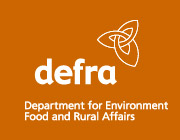Please see a range of policy opportunities coming up soon.
If you intend to respond to a select committee inquiry, a consultation, or an APPG (all party parliamentary group) call for evidence please engage with BU’s policy team in good time before submitting your response. Contact us on: policy@bournemouth.ac.uk
- BEIS Consultation survey – Get your voice heard on energy policy – BEIS are keen to understand how to more effectively engage experts and stakeholders in policy making process.
- Science Advice for Policy by European Academics (SAPEA) run a Science for Policy podcast which overviews science policy in different European contexts. Also useful resources to be found on their ‘Making sense of science for policy under conditions of complexity and uncertainty’ report.
- 4 March – Defra Science Advisory Council – recruiting both for Chair and members. They are really keen to encourage interest from a diverse range of people, and are happy to answer any informal inquiries directed at Amanna Giles, science.advisory.council@defra.gov.uk. Please find supporting note attached.
- 5 March – The International Trade Committee are looking for a number of specialist advisers to support on the scrutiny of trade negotiations. Advisers would be required to attend committee meetings (likely virtually). Details on how to apply can be found here.
- 5 March – COP26 calls for groups to bring climate summit to life – Cabinet Office and Rt Hon Alok Sharma MP
- 8 March – Call for Evidence: Civil Society Submission on the UN Convention on the Elimination of All Forms of Racial Discrimination being led by the Runnymede Trust. Background information can be found here.
- 9 March 2-4pm: Data First Academic Seminar – MoJ ARI
The seminar will focus on the Ministry of Justice Areas of Research Interest and Data First combined (more detail in the attached). It could appeal to both academics with an interest in justice data and knowledge brokers working on their behalf. If anyone is interested, please ask email datafirst@justice.gov.uk to be added them to the calendar invite.
- 17-21 May – Save the date – COP26 Climate Exp0 – A fusion of Science and Policy virtual conference – will showcase the latest thinking and most relevant international research in the run up to COP26 around five themes. Deadline to register 10 March.




 Defra intends to invest in projects for development of proposed actions, innovations and associated feasibility studies that will increase the resilience of UK infrastructure to a future changing climate.
Defra intends to invest in projects for development of proposed actions, innovations and associated feasibility studies that will increase the resilience of UK infrastructure to a future changing climate.












 SPROUT: From Sustainable Research to Sustainable Research Lives
SPROUT: From Sustainable Research to Sustainable Research Lives BRIAN upgrade and new look
BRIAN upgrade and new look Seeing the fruits of your labour in Bangladesh
Seeing the fruits of your labour in Bangladesh Exploring Embodied Research: Body Map Storytelling Workshop & Research Seminar
Exploring Embodied Research: Body Map Storytelling Workshop & Research Seminar Marking a Milestone: The Swash Channel Wreck Book Launch
Marking a Milestone: The Swash Channel Wreck Book Launch ECR Funding Open Call: Research Culture & Community Grant – Application Deadline Friday 12 December
ECR Funding Open Call: Research Culture & Community Grant – Application Deadline Friday 12 December MSCA Postdoctoral Fellowships 2025 Call
MSCA Postdoctoral Fellowships 2025 Call ERC Advanced Grant 2025 Webinar
ERC Advanced Grant 2025 Webinar Update on UKRO services
Update on UKRO services European research project exploring use of ‘virtual twins’ to better manage metabolic associated fatty liver disease
European research project exploring use of ‘virtual twins’ to better manage metabolic associated fatty liver disease